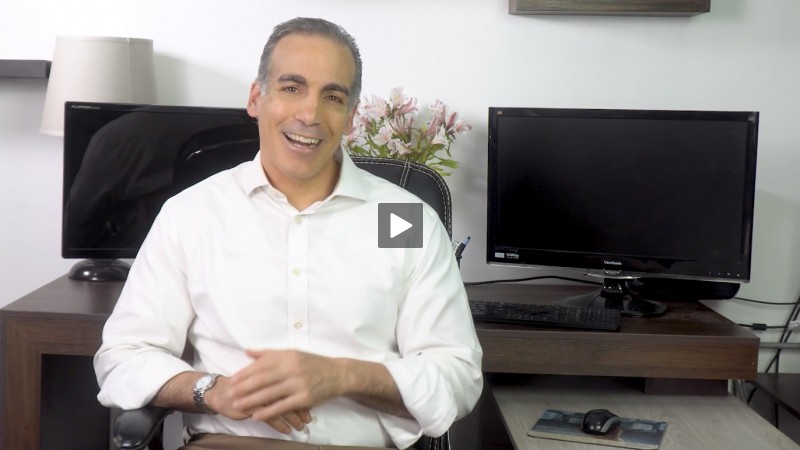What If? Planning Documents You Need to Manage Life's Events
- Detalles
- Escrito por Remar Sutton
- Categoría: Articles

Life happens—and it can be unpredictable. Planning ahead, however, can help you and your family cope with the unexpected and manage the expected. Every adult, from young to older, should make the effort to plan. Having the following documents in order can ensure that your wishes are carried out and help avoid family confusion or conflict.
Preparing the appropriate planning documents and compiling information about all your personal and financial affairs is crucial.
Managing Health Care
Without warning, an accident or illness can devastate any one at any age. Thinking ahead about your wishes for health care and who you would like to make decisions for you if you are incapacitated is important. The following legal documents help ensure that your wishes are carried out.
-
Power of Attorney for Health Care. In this document you name a person (who may be a family member, friend, or other agent) to make health care decisions for you if you are incapacitated and not able to express your own wishes. Before creating the document, make sure that you discuss your wishes with the person you wish to have your power of attorney and get their agreement to serve. You may also wish to name a back-up agent in case the first person is unable to serve. Different state laws have slightly different requirements; find your state's form by entering your state's name and “form for power of attorney for health care” in your search engine. The document becomes valid when you sign it in the presence of the required witnesses. You don't need an attorney or planning professional to prepare the document, but in some cases such help may be useful. Provide your agent(s) a copy of the document.
-
Medical Information Release (HIPAA Release Form). Federal regulations to ensure the privacy of personal medical information can make it difficult for even a close family member to get information. Having a properly executed medical information release form on hand allows you to name those people you'd like to be able to get information if you aren't able to share. Such individuals typically might be spouse or partner, parents, children or siblings.
-
Living Will or Advance Directive. In this document you consider what type of treatment you would or would not like to have in various circumstances. For example, you can give directions about the circumstances in which you would or would not like to be resuscitated. Make sure your health care agent(s) has a copy.
Managing Financial Affairs
Having a trustworthy person who can quickly step in to manage your financial affairs is important if you become unable to make appropriate decisions and/or manage these matters yourself. Having such support can be helpful for the short-term (for example, if an accident puts you in the hospital for a time) or the long-term (for example, if growing older results in difficulty managing).
-
Durable Power-of-Attorney for Finances. This document is a simple, inexpensive way to designate a trustworthy person to manage your financial affairs if you are not able to do so, temporarily or long-term. The power of attorney can be as limited or broad as you desire. For example, you may limit your agent to signing on your accounts to pay bills, mortgages, taxes, and the like. Or you may give your agent power to manage all your financial affairs, including managing investments and property. Often spouses hold this broad power for each other. Older adults may find security and support in providing this broad power to one of their children. You may change or revoke your power-of-attorney at will. You can find power-of-attorney forms and instructions appropriate for your state online on your state government's website.
Tip: Managing Someone Else's Money. If you hold the financial power-of-attorney for a family member or friend, find out more about your responsibilities in the guide prepared by the federal Consumer Financial Protection Bureau (CFPB). [http://www.consumerfinance.gov/managing-someone-elses-money/]
-
Adding a trustworthy child to bank and credit accounts. In addition to executing a durable power of attorney, some older adults find it helpful to add the child or friend who is their agent as a signatory to certain bank and/or credit accounts. For example, many older adults who are living independently find added security in knowing that a trusted individual is also checking monthly statements for errors or discrepancies and is able to step in immediately to pay a bill or buy groceries in an emergency.
Estate Planning
What will happen to your assets at the end of your life? Almost nobody likes to think about dying, so many people tend to neglect this planning. But taking some simple steps can ensure that you control what happens. Even if you are single and just starting a career, you may have more assets than you realize. If you don't decide what happens to your personal property, life insurance, and retirement account, for example, then state law determines who gets your assets.
-
Will. A will describes how you want your assets distributed and names an “executor,” the person who will administer your estate. If you have minor children, a will can also name guardians for those children. Although you can create a will by yourself using an online form, it is a good idea to consult an estate attorney or planning professional so that you meet the requirements for your state.
-
Trusts. If your assets have a large monetary value and you wish to control matters related to inheritance and estate taxes, some type of trust may be appropriate. Discussing and deciding about trust options with an attorney or estate planning professional is a must.
-
Letter of Instruction. Although this is not technically a legal document, you can use a letter of instruction with your will (and trusts) to share your wishes for such things as your memorial service and place of burial. Such a letter could also leave instructions for where to find important documents or address other concerns outside your will.
-
Keeping Beneficiary Information Updated. Assets such as life insurance, retirement accounts and annuities all have beneficiaries. Upon your death, these assets go to whomever is named the beneficiary regardless of any other statement you may have made about them (as in a will). Therefore, it is important to regularly review and update the beneficiaries so that these assets are distributed as you desire.
Organizing Your Planning Documents and Important Information
If you prepare all these planning documents but don't share the information with those you have named your agents and your family, you could create confusion for these people. So it is important to have these planning documents in one place and to share copies with your agents and family. In addition, gather information in one place (such as a binder or file drawer) about all your financial accounts, retirement accounts, insurance policies, home mortgages or deeds, auto titles, warranties and the like. Make a list of online accounts and their access information (user names, passwords). Keep this information in a secure place. You may also wish to make a backup copy of all the information and store it in a separate, secure place. Tell your agent or family where this information is stored and how to access it.
Communication Is the Final Key to Success
Preparing the appropriate planning documents and compiling information about all your personal and financial affairs is crucial. But your efforts could fall short of your goal unless you communicate your wishes and planning with family members and/or friends you wish to act for you. Having a conversation about such personal matters isn't usually easy, but it is essential to success and peace of mind.
For More Information
- The Financial Planning for Life Events webpages from the Financial Planning Association have many articles.
- What Are Advance Directives? and other planning information is available from Caringinfo.org
- Prepare to Care: A Planning Guide for Families from AARP offers information and checklists to help plan for caring for a family member.






























